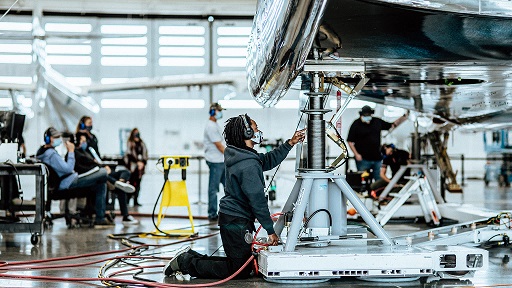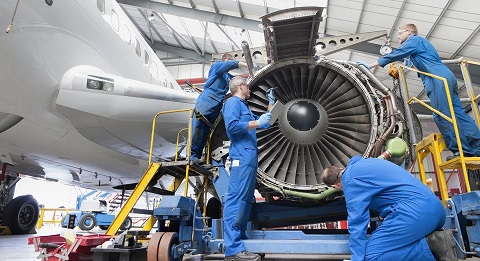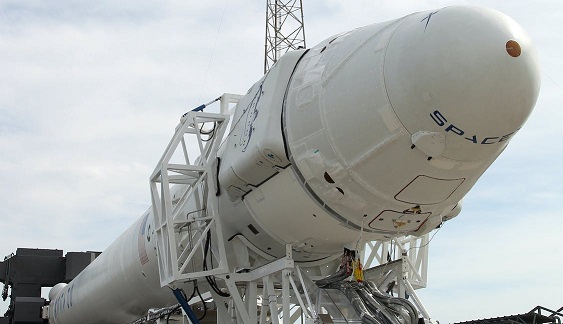Aeronautical Engineering In Nigeria – What You Must Know
If you’re interested in aeronautical engineering in Nigeria, then read this post.
Are you a student interested in aircraft-related subjects or a science enthusiast? Are you trying to decide on the best career path for yourself?
This article has all the information you need about Aeronautical Engineering.
It covers admission requirements, job duties, career opportunities, and the salary structure for aeronautical engineers in Nigeria.
Additionally, we have a recommendation for you: some free CNC Training Courses that will assist you in aerospace machining.
Aeronautical Engineering In Nigeria
Aeronautical engineering is a profession that involves designing and studying machines that can move through the air.
Aeronautical engineers are highly paid professionals in Nigeria. They specialize in areas such as aerodynamics, avionics, and propulsion.
Their research focuses on breakthroughs in aviation, defence, and space exploration. They are responsible for the design, building, maintenance, and testing of aircraft and associated systems.
Aeronautical engineers also design supersonic jets, helicopters, space shuttles, satellites, and rockets. They contribute to advancements like speedy mail delivery and moon travel.
Aeronautical engineering is considered one of the most challenging fields of engineering.

Aeronautical Engineering Salary In Nigeria
Aeronautical engineers can earn an annual income of around 3 million Naira, along with other bonuses and incentives. The actual salary depends on various factors, which we will discuss later in this article.
As an aeronautical engineer, there are certain skills you should possess, such as:
- Creativity and good manipulation skills
- Ability to work under pressure
- Time management skills to meet deadlines
- Strong analytical and problem-solving abilities
- Proficiency in mathematics
- A bachelor’s degree in aeronautical engineering from a university
- Relevant work experience
Now let’s talk about the admission requirements to study Aeronautical Engineering in Nigerian universities. Some of the universities that offer aeronautical engineering programs are:
- Covenant University
- Federal University of Technology
- Ahmadu Bello University
- Kwara State University
- Ladoke Akintola University
- University of Lagos
- University of Port Harcourt
- University of Benin

Top Requirements to Study Of Aeronautical Engineering In Nigeria
To study Aeronautical Engineering in Nigeria, you will need to meet certain admission requirements. Aeronautical Engineering falls under the Faculty of Engineering, Environment & Technology in Nigerian universities.
The O’level subject combination and requirements for Aeronautical Engineering are as follows:
- You must have five credit passes in SSCE/NECO/NABTEB or their equivalent examinations.
- These credit passes should include Physics, Geography, Mathematics, English Language, and any other science subject.
In summary, to pursue a career in Aeronautical Engineering, it is important to have good grades in these subjects at the secondary school level. Check out the Universities in Nigeria and Their Departmental Cut Off Marks.

UTME Subject Combination
If you are planning to study Aeronautical Engineering in UTME, it is important to know that English Language is a compulsory subject for this course.
In addition to English, you will also need to write three other JAMB UTME subjects, which are Physics, Geography, and Mathematics.
These subjects are required for admission into Aeronautical Engineering.
Some Top Job Roles for Aeronautical Engineers In Nigeria
Aeronautical engineers in Nigeria have various job roles, including:
- Providing design templates and assumptions for aircraft engine manufacturing.
- Creating and conducting test procedures on aircraft.
- Conducting theoretical and practical studies and research in the field.
- Offering technical advice and consultation to enhance aircraft engine performance.
- Applying their technical expertise to ensure maximum flight safety and resolve aviation-related issues.
Aeronautical engineers can work in office settings or aircraft workshops.

Some Companies in Nigeria You Can Work As An Aeronautical Engineer
You can find employment as an Aeronautical Engineer in Nigeria in the following types of companies:
- Contract Agencies
- Educational institutions such as universities and polytechnics as lecturers
- Government agencies, like the Ministry of Defense
- Armed Forces
- Civil services
- Research and Non-Governmental Organizations
- Aviation industries
Top Job Opportunities in Nigeria Available In Aeronautical Engineering
Here are some career options in Aeronautical Engineering:
- Aerospace Engineer: Creates aeroplane and spaceship designs.
- Design Engineer: Creates plans and blueprints for aircraft components and systems.
- Maintenance Engineer: Ensures proper functioning and repairs of aircraft and systems.
- Manufacturing Systems Engineer: Oversees the production process of aircraft and related equipment.
- Materials Engineer: Researches and develops new materials for aircraft construction.
- Mechanical Engineer: Works on mechanical systems in aircraft.
- Automotive Engineer: Designs automotive components.
- Control and Instrumentation Engineer: Designs control systems for aircraft.
- Energy Engineer: Focuses on energy efficiency in aviation.
- Patent Attorney: Deals with legal protection for inventions in aerospace engineering.
- Production Manager: Manages aircraft manufacturing.
- Quality Manager: Ensures aircraft meet quality standards.
- Technical Sales Engineer: Provides technical support in selling aerospace products.

As mentioned earlier, aeronautical engineers in Nigeria receive high salaries. Yes, that true but the amount changes based on certain factors.
Now, These factors include:
Geographical Location:
Aeronautical engineers in regions with many aviation industries, such as Lagos, Abuja, and Kano, probably get paid more than those in other areas in Nigeria.
Qualifications:
To work as an aeronautical engineer, you need a degree in aeronautical engineering. It’s important to obtain a first degree in this field to be considered for a job.
Employer and Work Experience:
The reputation and structure of the company you work for can impact your salary. The duration and experience you have in the field also play a role in determining your salary.
If you’re interested in advancing your knowledge and skills in aeronautical engineering, you can consider pursuing a Master’s degree. This allows you to specialize in a specific area of the subject and opens up more opportunities in the field.
Additionally, taking recognized courses in the field can further enhance your education and career prospects.
Whether you already have a degree in aerospace engineering or are considering it as a future career, it’s important to stay informed about the industry and explore the various career opportunities available to you.

FAQs:
In Nigeria, how long does it take to study Aeronautical Engineering?
Typically, studying Aeronautical Engineering in Nigeria takes four years to complete. During this period, students gain the necessary knowledge and skills to excel in the field.
How much are aeronautical engineers paid in Nigeria?
The salary of aeronautical engineers in Nigeria differs. On average, entry-level aeronautical engineers can expect a starting salary ranging from ₦1,500,000 to ₦3,000,000 per annum, with the potential for higher earnings as they gain more experience and expertise.
What is the JAMB cut off mark for Aeronautical Engineering?
JAMB sets a general cutoff mark for universities in Nigeria, which is usually 160 out of a total score of 400.
However, it’s important to note that individual universities may have their own specific cutoff marks for Aeronautical Engineering, which can vary from one institution to another.
What subjects are needed for Aeronautical Engineering in JAMB?
To pursue Aeronautical Engineering in JAMB, you typically need to have a strong foundation in Mathematics, Physics, and Chemistry.
These subjects are usually required for admission into most engineering programs, including Aeronautical Engineering.
Which subject is needed for Aeronautical Engineering in WAEC?
In WAEC (West African Examinations Council), the subject requirements for Aeronautical Engineering are usually Mathematics, Physics, Chemistry, and English Language.
These subjects are considered essential for gaining admission into Aeronautical Engineering programs.
How many years is Aeronautical Engineering?
Aeronautical Engineering programs usually take four years to complete, leading to a bachelor’s degree. However, some universities may offer variations, such as integrated programs that combine undergraduate and postgraduate studies, which can extend the duration.
How do you qualify for Aeronautical Engineering?
To qualify for Aeronautical Engineering, you typically need to meet the admission requirements set by the university offering the program.
This generally includes having a solid educational background in subjects like Mathematics, Physics, and Chemistry, as well as meeting the cutoff marks and any other specific prerequisites set by the institution.
Is further maths compulsory for Aeronautical Engineering?
While further mathematics is not universally compulsory for Aeronautical Engineering programs in Nigeria, it can be highly beneficial.
Further mathematics builds upon the foundation of mathematics and helps develop a deeper understanding of complex mathematical concepts and applications, which are crucial in the field of engineering.
What is the acceptance rate for Aeronautical Engineering?
The acceptance rate for Aeronautical Engineering can vary depending on the institution and the competition for admission.
Prestigious universities or programs may have a more competitive acceptance rate, while others may have a higher acceptance rate.
It is best to check with the specific university or program for their current acceptance rate.
Which subject is best for Aeronautical Engineering?
The subjects that are considered essential and best suited for Aeronautical Engineering include Mathematics, Physics, and Chemistry. These subjects provide the foundational knowledge and skills needed to understand the principles and concepts underlying aeronautical engineering.
What is the best school for Aeronautical Engineering?
The University of Lagos (UNILAG) is widely recognized as one of the best institutions for Aeronautical Engineering in Nigeria.
However, other institutions such as the Federal University of Technology, Akure (FUTA), and the Nigerian College of Aviation Technology (NCAT) also offer excellent programs and have reputable faculties in this field.
It is advisable to research and consider factors such as curriculum, faculty expertise, and facilities when choosing the best school for your specific needs.





